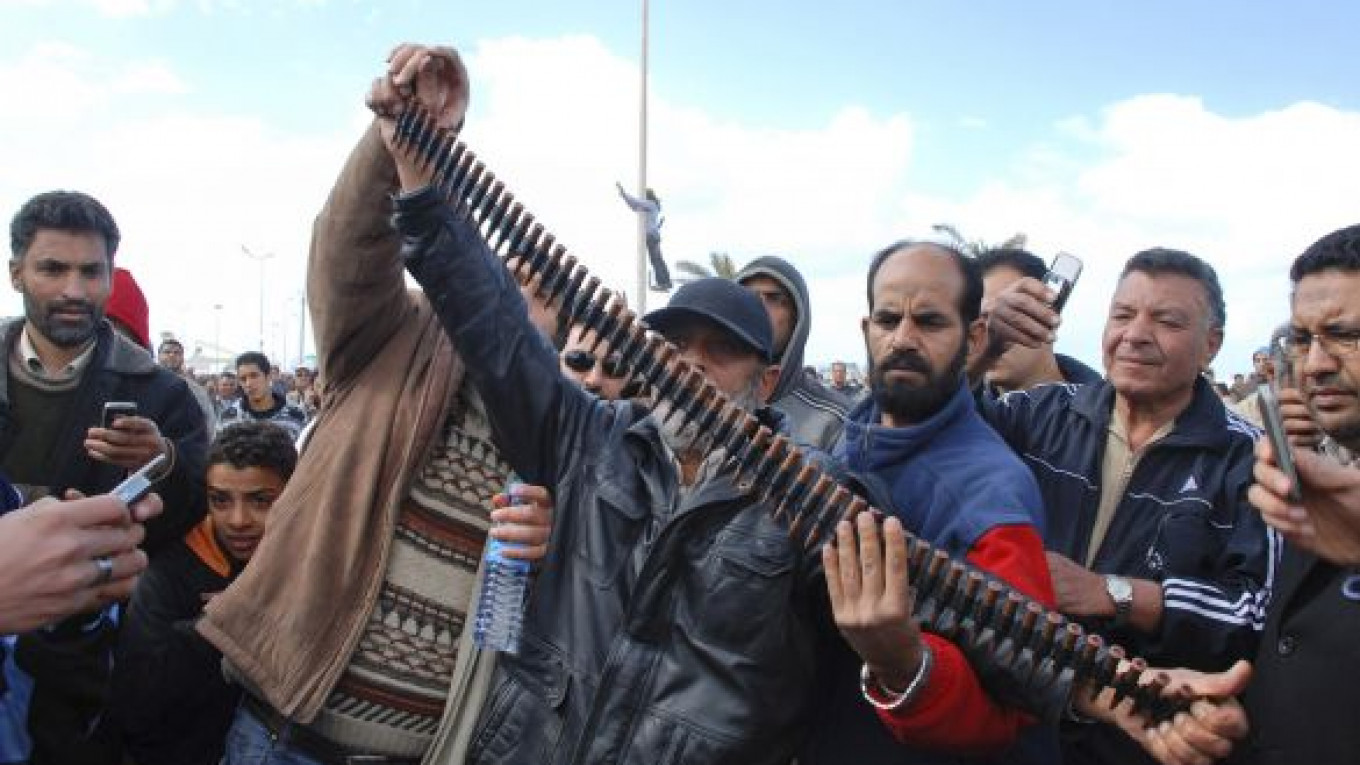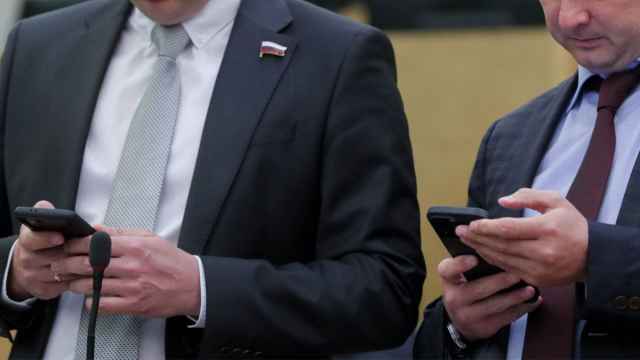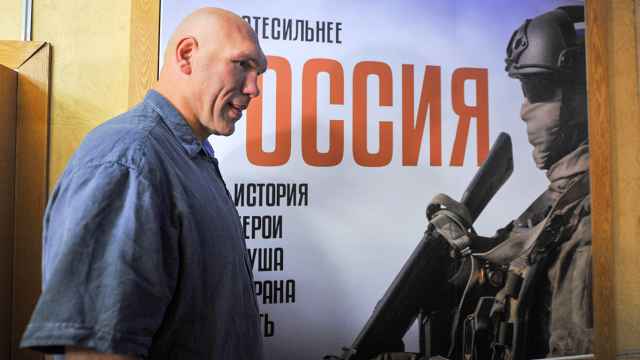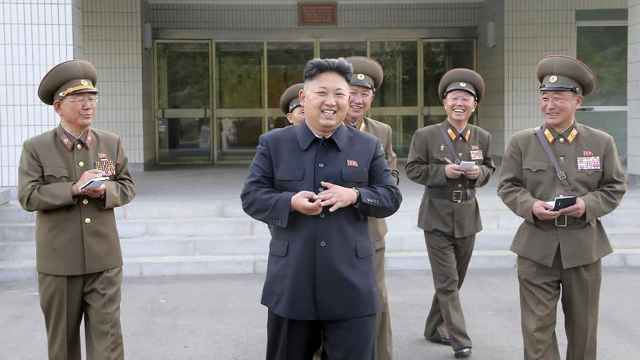As the bloody violence in Libya spread Monday, Russia began to pull out specialists working on high-profile investment projects in the North African country.
Russian Railways said in a statement on its web site that it was bringing home all its 204 engineers working on a rail link between Benghazi and Sirte.
The eastern port city of Benghazi saw the worst anti-government violence Sunday in which more than 200 people were killed, according to human rights groups.
Speaking earlier on Ekho Moskvy Radio, Valentin Manzhiyev, who works for Russian Railways subsidiary ZarubezhStroiTekhnologia, said about 350 Russians currently working in Libya were unable to leave the country.
Gazprom said it was pulling out some 20 company representatives from the country, RIA-Novosti reported.
The energy giant had just last week signed an agreement with Italy's Eni to jointly develop the Elephant oil field in southern Libya.
It was unclear how evacuations would be executed from the hard-hit eastern part of the country. Reports said Monday that a Turkish Airlines plane could not land in Benghazi because the airport had been taken over by protesters.
The Foreign Ministry said the Emergency Situations Ministry is ready to dispatch an evacuation mission if necessary and advised Russians not to travel to Libya. President Dmitry Medvedev later weighed in by ordering to organize the evacuation.
In a statement on its web site the Foreign Ministry called for an end to the violence and for political dialogue. "This is the only way to avoid further civilian victims," the statement said.
The possibility of a violent overthrow of Muammar Gaddafi's 42-year reign is calling into question all foreign investment in the country.
Like major Western countries, Russia has been eager to get a foothold into Libya since the energy-rich country opened for investment .
In 2008, then-outgoing President Vladimir Putin traveled to Tripoli where he oversaw a debt-for-contracts deal that included a $3.5 billion agreement to build a 550-kilometer high-speed railway between Sirte and Benghazi. The project is scheduled for completion in 2012, Russian Railways said on its web site.
The work includes a rail welding plant in Ras Lanuf, which was opened by Russian Railways chief Vladimir Yakunin last June.
In October 2008, Gaddafi made his first visit to post-Soviet Russia, setting up his trademark Bedouin tent inside the Kremlin walls.
Still, the economic risk for Russia is small, Yevgeny Satanovsky, head of the Institute of Middle Eastern Studies, said Monday. "Thanks partly to our Western competitors, we have not yet been successful in sinking large sums into that country," he told The Moscow Times by telephone.
Meanwhile, Liberal Democratic Party leader Vladimir Zhirinovsky offered asylum to the embattled Gaddafi. "I suggest you make Moscow your permanent home — I sincerely invite you as a dear guest," Zhirinovsky said in a statement on the party web site.
A Message from The Moscow Times:
Dear readers,
We are facing unprecedented challenges. Russia's Prosecutor General's Office has designated The Moscow Times as an "undesirable" organization, criminalizing our work and putting our staff at risk of prosecution. This follows our earlier unjust labeling as a "foreign agent."
These actions are direct attempts to silence independent journalism in Russia. The authorities claim our work "discredits the decisions of the Russian leadership." We see things differently: we strive to provide accurate, unbiased reporting on Russia.
We, the journalists of The Moscow Times, refuse to be silenced. But to continue our work, we need your help.
Your support, no matter how small, makes a world of difference. If you can, please support us monthly starting from just $2. It's quick to set up, and every contribution makes a significant impact.
By supporting The Moscow Times, you're defending open, independent journalism in the face of repression. Thank you for standing with us.
Remind me later.







